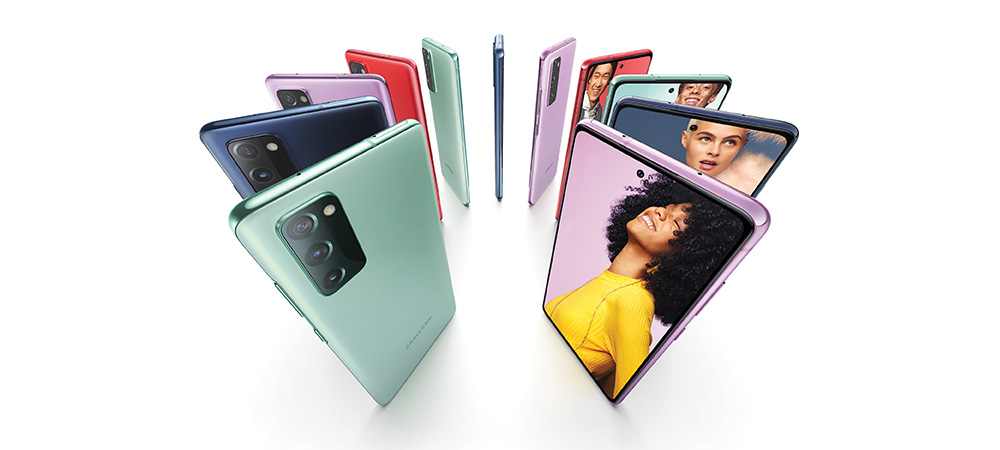
One thing Samsung knows for certain: it’s interested in budget flagships. The category makes sense these days, as users are increasingly unwilling to spend north of $1,000 on new phones. That’s doubly the case during the COVID-19 pandemic, with people leaving the house far less often and simply not possessing the same sort of disposable income they once had, amid economic slowdowns and widespread unemployment.
What’s less certain is how to position such a device. Samsung’s been through a lot of different names, including, most recently, the “Lite” line. That name made sense from a utility perspective. The S10 Lite was simply a lower-spec’d version of the flagship of similar name. Ultimately, however, I suspect that Samsung decided that pointing to the device’s shortcomings wasn’t ideal from a branding perspective, which is why we’re currently looking at the Samsung Galaxy S20 FE — or “Fan Edition.”

Image Credits: Samsung
The name implies that the product is an update to the S20 aimed firmly at Samsung’s fans. Here’s what Mobile head TM Roh had to say about the new device: “We are constantly speaking to our fans and taking feedback, and we heard what they loved about our Galaxy S20 series, what features they used most often and what they would want new smartphone. The S20 FE is an extension of the Galaxy S20 family and is the start of a new way to bring meaningful innovation to even more people to let them do the things they love with the best of Galaxy.”
That’s true from a certain perspective. Samsung says it did some focus grouping to come up with the right combination for the FE, which I believe. It’s also probably true that “cheaper” was a big feature many folks have been looking for in their handsets in recent years, so from that standpoint, Samsung’s got fans’ numbers here — $699 for something approaching a flagship isn’t that bad, these days.
And Samsung’s made a point to be mindful of the comprises it made here in the name of keeping the prices down. The biggest changes from the rest of the S20 series are a downgrade in materials, from a glass and metal to plastic (polycarbonate) design, display and camera specs. At 6.5 inches, the screen size actually falls between the S20 and S20+, but it’s been reduced from a QuadHD+ resolution to FHD+ — similar to what you’ll find on the Galaxy A71. The refresh rate stays at 120Hz, though the curved screen is gone.

Image Credits: Samsung
The S20’s 8GB of RAM has been reduced to 6GB, though the 128GB of standard storage remains the same. You’ll find the same Snapdragon 865 on board and, interestingly, the battery has actually been upgraded from 4,000mAh to 4,500mAh, owing to a larger device footprint. There are three rear-facing cameras, with the telephoto dropping from 64-megapixels down to eight — though the front-facing selfie cam has been upgraded from 10 megapixels to 32.
Not the latest and greatest, but in all, pretty reasonable compromises made in the name of shaving $300 off the device’s starting price. Pre-orders start today. The device starts shipping October 2.

